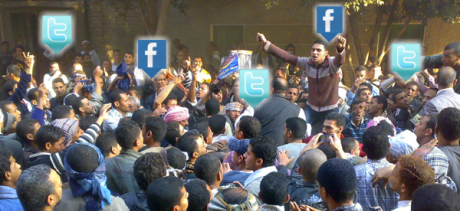Egypt 'shuts down Internet' amid further protests; Facebook web traffic drops

With further protests planned and growing pressure on Egyptian leaders to resign after alleged human rights violations, it is believed that the Egyptian government has 'shut down' the Internet in the region.
While access directly to the Facebook and Twitter websites are inaccessible from within Egypt, protesters are circumventing the blocks in place by using mobile applications which still work. Proxy websites are also being used, as they mask the address of website, allowing those to access social networking sites.
But as the blocking measures are failing, it appears that Egypt has sanctioned measures to 'shut down' web access, fearing the same reprisals as seen in Tunisia earlier this month where the government collapsed and the president was forced into exile.

Further protests have been organised to take place tomorrow, said to be the largest yet. Egypt's interior ministry said it will take "decisive measures" against protesters.
It is also reported that SMS messages are also being blocked, amid further anti-government protests. DSL, landline and 3G services are said to have been taken offline in Cairo, according to one CNN reporter. Associated Press reporters are also suffering outages in the region.
Reuters reports that Facebook has seen a significant drop in traffic to Facebook from Egypt, suggesting that social networks have been a factor in the rise in protests.
"We are aware of reports of disruption to service and have seen a drop in traffic from Egypt this morning", a Facebook spokesperson said.
The US government, an ally of Egypt, called on the Egyptian authorities to unblock the social media sites that have been used to organise the anti-government protests, arguing the government should "not prevent peaceful protests or block communications". .